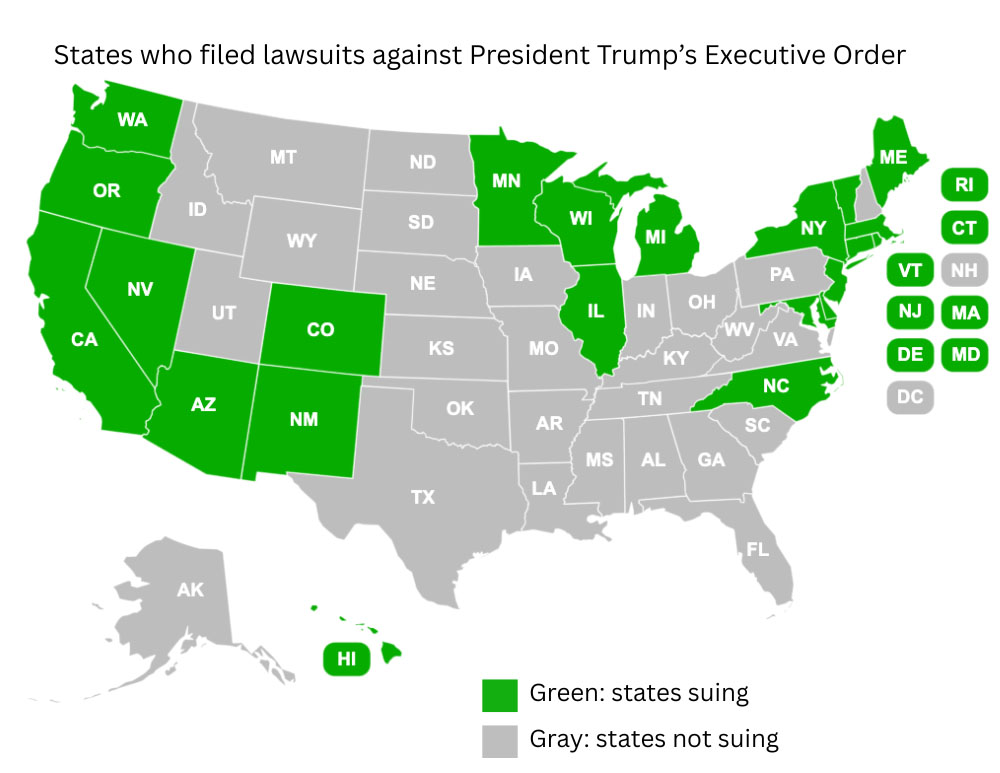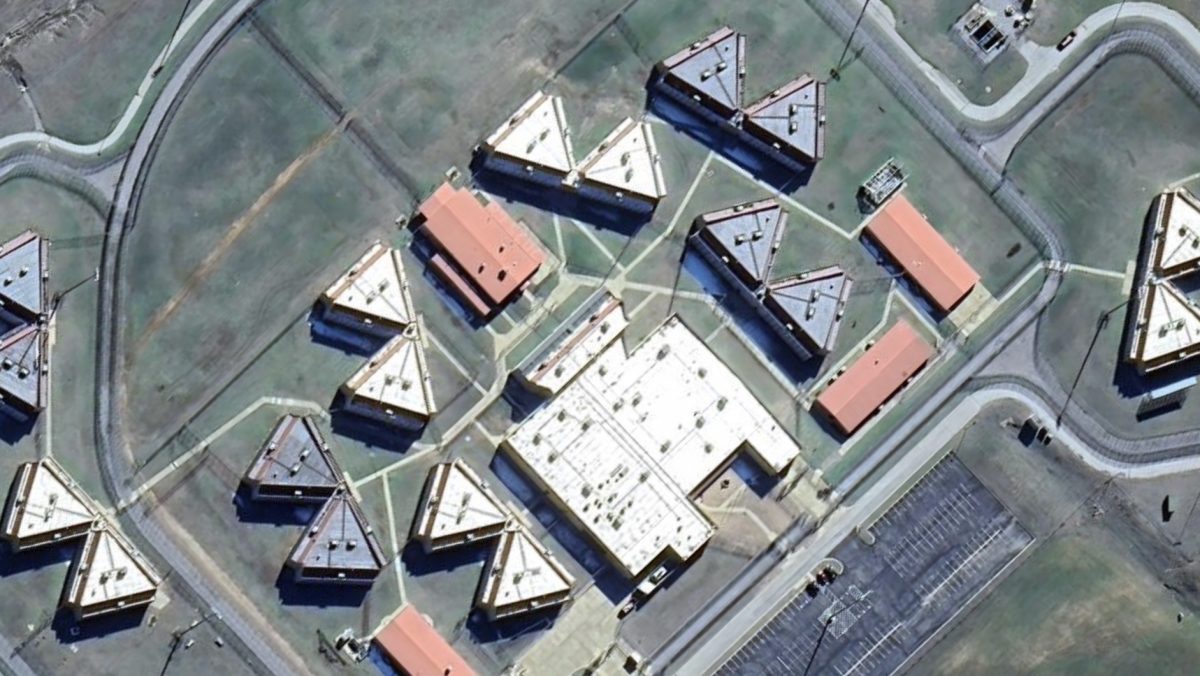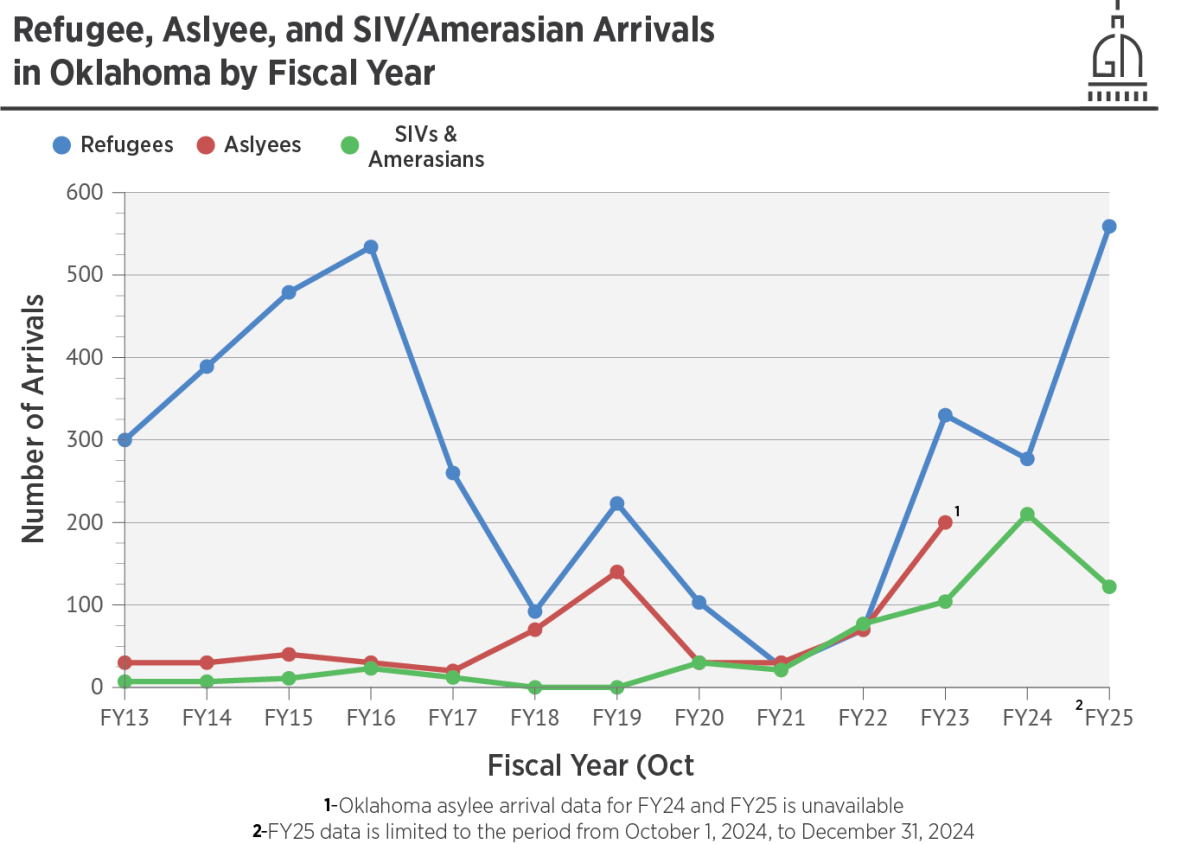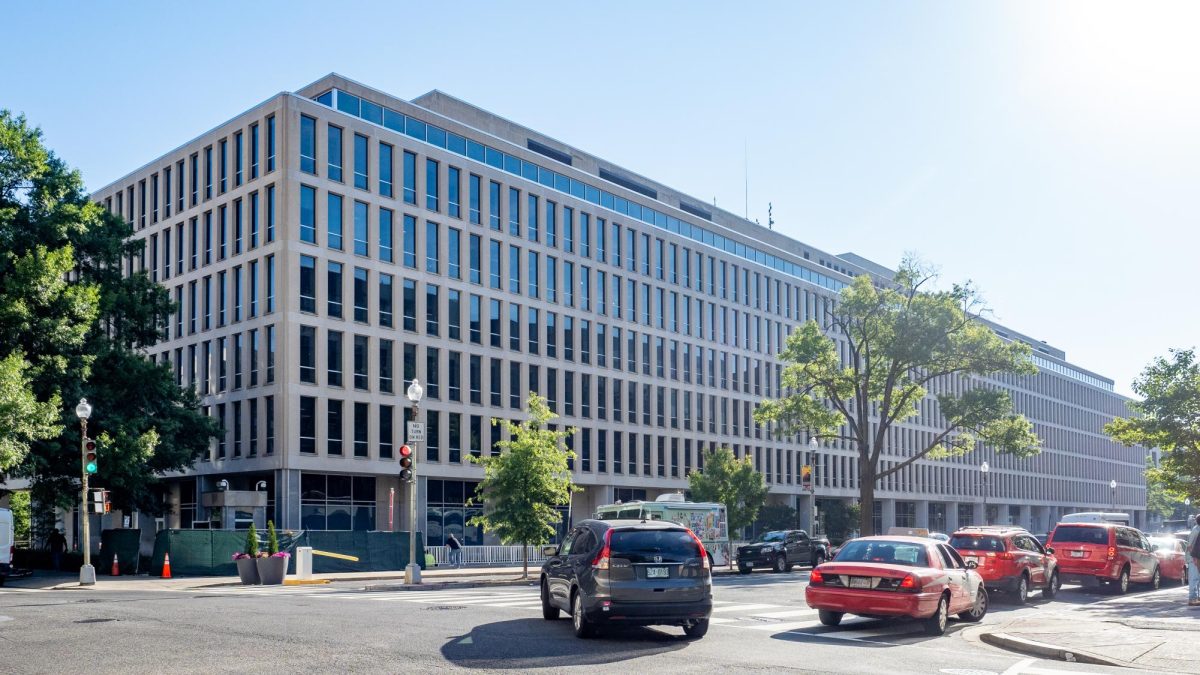WASHINGTON – A U.S. District judge’s decision to certify the ACLU’s class action lawsuit in New Hampshire blocking President Trump’s birthright citizenship order nationwide shows that courts are still able to take legal steps to block its implementation.
While the Supreme Court last month limited the ability of lower courts to issue nationwide injunctions, U.S. District Judge Joseph Laplante’s decision demonstrates that broad relief may still be possible through other legal avenues.
The injunction, sought by the American Civil Liberties Union, ACLU of New Hampshire, ACLU of Maine, ACLU of Massachusetts, Legal Defense Fund, Asian Law Caucus and Democracy Defenders Fund, applies to all babies born in the United States after June 27 when the lawsuit was filed who would be denied citizenship under Trump’s executive order. This includes babies born in states like Oklahoma, which were not part of the initial lawsuits.
Oklahoma Sen. Markwayne Mullin (R-Westville), in a recent NBC News’ Meet the Press broadcast on June 29, said the goal of Trump’s order is to stop parents from coming to the United States solely to have a child who would gain citizenship. He argued the practice amounts to “gaming the system.”
However, the New Hampshire court stayed its ruling to give the federal government time to appeal, meaning the injunction will not take effect until July 27. Despite the delay, the class action itself, filed by 22 states, can continue to move forward before that date.
While the Supreme Court limited the use of nationwide injunctions, it did not eliminate the possibility of broader legal challenges through other means, particularly class action lawsuits. Because class actions are procedurally authorized under federal rules, they provide courts with a structured way to offer relief to a defined group of plaintiffs, without requiring a ruling to apply nationwide.
Still, with the possibility that the executive order banning automatic citizenship could take effect in mostly Republican states, the question remains whether the case might return to the Supreme Court to address the broader constitutional issue of birthright citizenship under the 14th Amendment.
Currently, appeals from the original injunctions are pending in the Ninth, Fourth and First Circuits. These appeals were filed before the Court’s decision last month barring nationwide injunctions without them having been declared as class actions. Those cases could still make their way to the Supreme Court directly and are separate from the new class action case.
Paul Shiff Berman, a law professor at George Washington University, explained that if New Hampshire’s class action is appealed, further legal action could still follow.
“The courts will still be able to set aside government action, either through the class action mechanism or through the administrative procedure act once the government action is actually implemented by an administrative agency,” Berman said.
So in the case that the class action lawsuit from New Hampshire is appealed and Trump’s executive order goes into effect in certain states it could fall under the Administrative Procedure Act, giving courts broader authority to block it.
William Harold Powell, Senior Counsel at the Institute for Constitutional Advocacy and Protection (ICAP) at Georgetown University Law School and counsel for CASA, the plaintiff in the Supreme Court appeal, stated that while he believes the procedural requirements for this class action have been met, a court could still reject the class action on procedural grounds even if it finds the executive order unconstitutional.
In that scenario, the federal government might attempt to enforce the order in states not involved in the lawsuits. Although some individuals, such as members of plaintiff organizations like CASA and Asylum Seeker Advocacy Project (ASAP) located in Oklahoma, would remain protected, this could result in a confusing patchwork of legal coverage across the country.
“It could create a really bad situation, one where the citizenship of a baby depends on which state they’re born in,” Powell said. “That’s not something we’ve seen since the Civil War.”
Members of Oklahoma’s delegation have voiced their opinions on both the Supreme Court decision itself and the broader issues surrounding Trump’s executive order.
In a statement on the social media platform X, Senator James Lankford (R-Oklahoma) emphasized the importance of the Supreme Court ruling’s focus on the separation of powers, stressing the need to prevent governmental overreach.
“The Supreme Court held today that federal courts do not have the authority to issue nationwide injunctions. This decision affirmed our system of checks and balances that ‘when a court concludes that the executive branch has acted unlawfully, the answer is not for the court to exceed its power too. Lower courts should only make decisions for the parties in front of them, not the whole nation,” Lankford said.
Gaylord News is a reporting project of the University of Oklahoma Gaylord College of Journalism and Mass Communication. For more stories by Gaylord News go to GaylordNews.net.








